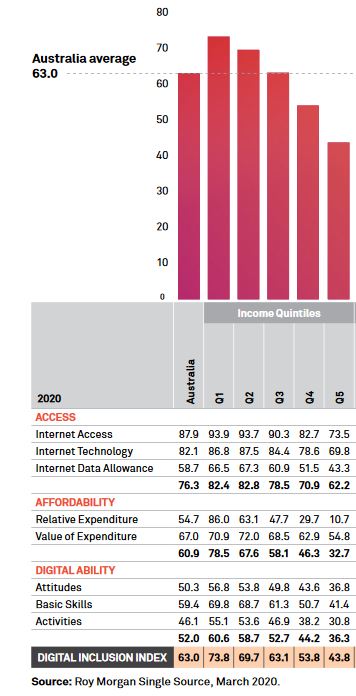The Good Things Foundation – a national social change charity that helps people improve their lives through digital – has released its pre-budget submission 2021/22, which proposes a major funding increase for community-based digital skills projects.
The submission reads:
The COVID-19 pandemic has highlighted the digital divide in Australia which, without urgent action, is at risk of becoming even wider. A digitally included country is one where all citizens can participate in the rapidly transforming digital economy, find and maintain work, maintain social connections, access online government and health services, and find reliable information, even in times of crisis.
To support our communities to recover from the pandemic and become digitally resilient participants of the digital economy, the Good Things Foundation says that the Australian Government must:
- Provide funding for community-based essential digital skills programs to ensure all Australian adults are work-ready for the new economy. Particular focus needs to be given to supporting women re-entering the workforce, small business owners, people with disability, Indigenous Australians and CALD.
- Extend community education programs so all Australians have the skills to adopt telehealth and digital health initiatives. Community-based digital health literacy programs have supported people during the pandemic to manage their health and wellbeing using tools like My Health Record, and find reliable information online. As the health landscape rapidly transforms, more support is needed to maximise uptake of telehealth and government health initiatives.
- Establish digital media literacy programs targeting adults with low digital capability to reduce online harms and prepare for emergencies. Locally delivered but nationally coordinated community education programs are needed to support vulnerable adults to safely navigate the online world, find reliable information (particularly in a crisis) and understand how to report harms and keep their families safe online.
Being digitally excluded means not having the access or ability to connect safely and confidently to the internet in an affordable way. The Australian Digital Inclusion Index (ADII) identifies the groups across Australia who are more likely to experience digital exclusion as being:
- Older Australians
- People on lower incomes (see image below)
- People with lower levels of education
- Indigenous Australians
- People who have a mobile-only connection
- People with disability
- People out of the workforce
- People living in rural areas
Community Colleges Australia Comment
“A large number of CCA members and other adult and community education (ACE) organisations participate in the Foundation’s Be Connected Network that helps older Australians learn digital skills. Those groups identified as most likely to experience digital exclusion are also those that our members reach better than any other Australian post-secondary education provider,” said CCA’s CEO, Dr Don Perlgut.
“With our extensive experience in adult learning and community engagement, ACE providers are natural partners in any roll out of digital community education. Through Tech Savvy Seniors and similar programs, our members have invested enormous time and effort in the ‘front line’ of combatting digital inclusion in Australian society,” said Dr Perlgut.
“We commend this proposal, and hope that the Commonwealth and other governments around Australia will fund a systematic digital community education program – operated by not-for-profit community education providers. With unemployment, community stress and social disconnection from the pandemic all at record highs, the priorities could not be clearer,” said Dr Perlgut.






